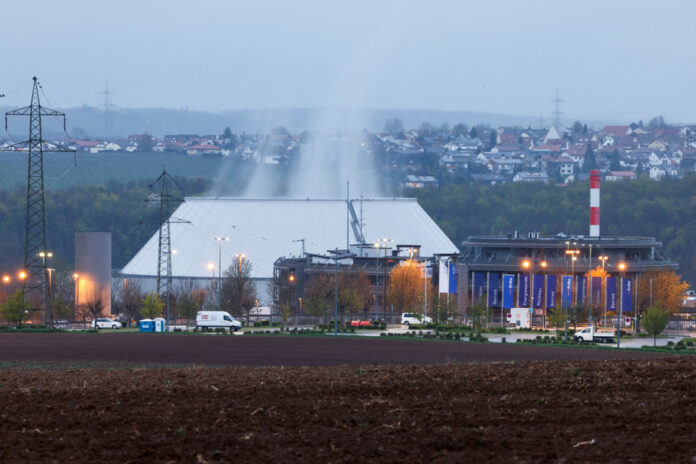(Berlin) Germany shut down its last three nuclear reactors on Saturday, the culmination of more than 20 years of phasing out atomic power in the country, despite controversies and the recent energy crisis in Europe.
Isar 2 (southeast), Neckarwestheim (southwest) and Emsland (northwest) power plants were disconnected from the power grid before midnight (6 p.m. ET), as planned, their operators said , the energy company RWE speaking of “the end of an era”.
The leading industrial power in Europe has respected, within a few months, the timetable for the energy transition set in the early 2000s and accelerated in 2011, after the Fukushima disaster, by a spectacular reversal of the former Chancellor Angela Merkel .
The gas crisis triggered by the war in Ukraine has put additional pressure on Berlin. And revived the debate, in the political class as well as in public opinion, on the advisability of closing the power stations.
The phase-out of nuclear power “comes too late and not too soon”, launched Saturday at a rally in Berlin the deputy Jürgen Trittin, figure of the Green party.
April 15 is a “historic date,” he said. It is the culmination of the decades-long fight by Germany’s powerful anti-nuclear movement against “dangerous, unsustainable and expensive technology”.
In front of the Brandenburg Gate, this farewell to the atom, symbolized by the remains of a dinosaur, brought together a few hundred people, as in Munich and other cities in Germany.
Since 2003, the country has already shut down 16 reactors.
The invasion of Ukraine marked a caesura. Deprived of Russian gas, the bulk of which Moscow has interrupted, Germany has found itself exposed to the darkest economic scenarios.
The government of Olaf Scholz has extended the operation of the reactors by a few months, compared to the shutdown initially set for December 31.
The winter finally passed without shortages, Russia was replaced by other gas suppliers, but the consensus around phasing out nuclear power has crumbled: in a recent poll for the public television channel ARD, 59% of respondents see it as a bad idea in the current context.
“It’s a strategic mistake, in a still tense geopolitical environment,” said Bijan Djir-Sarai, secretary general of the liberal FDP party, yet a partner in the government coalition of Olaf Scholz and environmentalists.
For the leader of the conservative opposition (CDU) Friedrich Merz, the abandonment of nuclear power is the result of an “almost fanatical bias”. “[…] The founding myth of the Greens triumphs over all reason,” he tweeted.
The last three plants supplied only 6% of the electricity produced in Germany last year, while nuclear represented 30.8% of the mix in 1997.
Meanwhile, the share of renewable energy reached 46% in 2022, compared to less than 25% ten years earlier.
But in Germany, the biggest CO2 emitter in the European Union, coal still represents a third of electricity production, with an increase of 8% last year to cope with the absence of Russian gas.
“The revival of fossil energy to compensate for the exit from nuclear power does not go in the direction of climate action”, reprimanded this week the French Ministry of Energy Transition.
France, with 56 reactors, remains the most nuclear country in the world per capita. At the European level, there are sharp differences between Paris and Berlin on the role of the atom.
Germany prefers to focus on its goal of covering 80% of its electricity needs with renewable energies by 2030, while closing its coal-fired power plants by 2038 at the latest.
“During the last ten years, Germany has not advanced the development of renewable energies as much as would have been necessary for climate protection and the energy transition”, explains to AFP Simon Müller, director Germany of the Agora Energiewende study centre.
It will be necessary to install “4 to 5 wind turbines every day” over the next few years to meet the needs, warned Olaf Scholz.


















